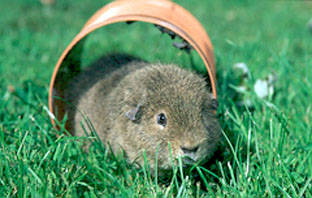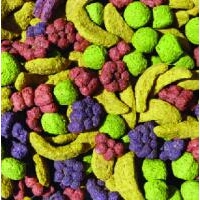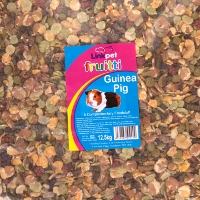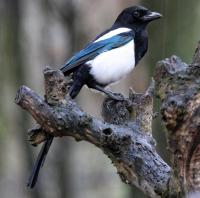- Home
- FAQs
- Customer Video Gallery
- Customer Photo Gallery
- Bird Facts
- Bird Food Blog
- Bird Information
- Feeding Advice
- Small Animal Information
- A to Z of Guinea Pigs
- A to Z of Hamsters
- A to Z of Rabbits
- Basic Care for Guinea Pigs
- Basic Care for Hamsters
- Basic Care for Rabbits
- Basic care for Chinchillas
- Basic care for Ferrets
- Basic care for Gerbils
- Basic care for Mice
- Basic care for Rats
- Buying a Healthy Small Animal
- Does your Reptile need a Licence
- Equipment for Ferrets
- Equipment for Hamsters
- Equipment for Mice
- Equipment for your Chinchilla
- Equipment for your Gerbil
- Equipment for your Guinea Pig
- Equipment for your Rabbit
- Keeping a House Rabbit
- Dog Information
- Cat Information
- Customer Information
- Fat Balls
- Suet Pellets
- Straights
- Seed Mixes
- Suet Treats
- Mealworms
- Bird Feeders
- My Account
Basic Care for Guinea Pigs
Guinea pigs make perfect pets as they’re friendly, fun to keep and very cute! Read on and find out more about looking after these chatty rodents.
Twootz provides Guinea Pig food and Small Animal fruity mix which are both ideal for your Guinea pigs well being.
You may not believe it, but there are around 0.7 million guinea pigs being kept as pets in the United Kingdom! This number is growing as more people realise the pleasures of keeping these cuddly, friendly and ‘talkative’ creatures who make wonderful companions for adults and children alike.
Housing and bedding
Tip: If you need to weatherproof your hutch, ensure you use a treatment that is not toxic to animals.
Grooming
Feeding
Tip: Hang carrots, apples etc from pieces of string in your guinea pigs’ cage to keep them occupied and therefore help prevent boredom.
Exercise
Tip: Guinea pigs love to hide in suitably sized tubes, upturned flowerpots, boxes etc and these should be used to enrich their exercise and living areas.
Health
In addition to your daily health checks, it is advisable to take your guinea pig to a vet for a yearly 'MOT'.
While at the vet’s you should:
Twootz provides Guinea Pig food and Small Animal fruity mix which are both ideal for your Guinea pigs well being.

You may not believe it, but there are around 0.7 million guinea pigs being kept as pets in the United Kingdom! This number is growing as more people realise the pleasures of keeping these cuddly, friendly and ‘talkative’ creatures who make wonderful companions for adults and children alike.
Housing and bedding
- Guinea pigs (otherwise known as cavies, singularly as a cavy) can be kept indoors or outdoors
- If your pet lives outdoors, his hutch should be moved to a sheltered location during the winter months as guinea pigs are sensitive to cold temperatures, damp and draughts
- Don’t be tempted to relocate the hutch to a garage; starting the car up regularly can cause carbon monoxide poisoning from exhaust fumes
- A garden shed is a safer option
- Generally, it is best to keep two or more cavies together as they are extremely social creatures
- A group will huddle together for companionship and also warmth when necessary, while a solitary guinea pig may suffer isolation depression which can lead to physical health problems. Therefore, it is important to choose a hutch large enough to accommodate each animal and provide enough space for the guinea pigs to escape from each other when required
- Two or more males kept together will fight, so choose two or more females to keep as pets
- Hutches that have separate sleeping compartments are the best type to purchase, as cavies like to hide away
- If situated outside, the hutch should be raised from the floor (on wooden legs or bricks) to prevent rising damp, as well as to help stop wild rodents (rats and mice) entering to steal food and spread disease
- Line the hutch with newspapers and cover with a suitable bedding such as clean sweet hay, untreated wood shavings or clean shredded paper (certain inks on printed paper may cause skin/eye irritation)
- Straw is not recommended as it may irritate the eyes
- During winter months, provide extra bedding to ensure your guinea pig stays warm and be aware that in severe cold weather it may be necessary to supply additional warmth with a small heater (not gas or paraffin due to fumes)
- Cavies are messy housekeepers and it is advisable to clean out the cage at least twice a week using a pet disinfectant. Allow the hutch to dry before putting your ‘piggy’ back in it
- As well as a hutch, invest in a suitably sized moveable grazing ark (outdoor pen) to allow your guinea pigs to exercise and graze on the lawn in fine weather
- An indoor ‘playpen’ is also useful
Tip: If you need to weatherproof your hutch, ensure you use a treatment that is not toxic to animals.
Grooming
- Grooming your guinea pig regularly helps promote healthy skin and good coat condition. In long-haired breeds (such as Peruvians), grooming is essential to prevent the coat matting
- Grooming will also ensure you detect any injuries or signs of illness early as well as increasing the bond between you and your cavy
Feeding
- Guinea pigs are herbivores and survive in their natural habitat on wild grasses and other herbage
- Domesticated animals enjoy feeding time and guinea pigs demonstrate this by greeting their owner with a happy repertoire of vocalisations (squeaks, whistles and grunts) when a meal is in the offing!
- Commercial cavy diets (cereal mixes and pellets) are complementary, ie fed alongside grass, hay, fresh fruit and vegetables (succulents) and water
- Succulents are thoroughly enjoyed and are good sources of natural vitamin C – but remember to wash all fresh foods in clean water before feeding to remove all traces of dirt and pesticide
- There are many commercial cavy foods available which supply all the essential nutrients your guinea pig needs
- Look for one that contains added vitamin C; cavies require a dietary source because they are unable to make this vitamin themselves
- Alternatively you can add a vitamin C supplement to your cavies’ water bottle
- Ensure that your guinea pigs have access to clean, fresh hay and water at all times
Tip: Hang carrots, apples etc from pieces of string in your guinea pigs’ cage to keep them occupied and therefore help prevent boredom.
Exercise
- Guinea pigs are inquisitive pets and require daily exercise to help maintain good condition, both mentally and physically, and prevent obesity
- Ensure that their exercise area is escape- and predator-proof
Tip: Guinea pigs love to hide in suitably sized tubes, upturned flowerpots, boxes etc and these should be used to enrich their exercise and living areas.
Health
In addition to your daily health checks, it is advisable to take your guinea pig to a vet for a yearly 'MOT'.
While at the vet’s you should:
- Ask your vet to show you how to trim his claws at home (they will need trimming regularly)
- Get your guinea pig's teeth checked. Cavies’ teeth grow continually and normally wear down through chewing. However, some suffer from overgrown teeth (malocclusions), which can be painful








